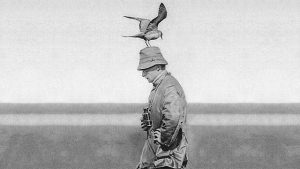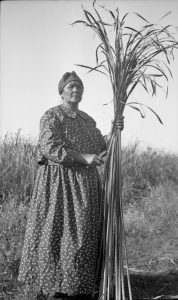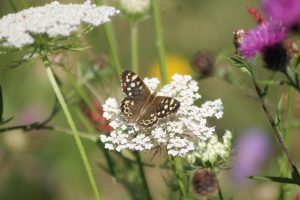
By Andy Winfield
Did you know that most birds stop singing in August and into September? They’ve done all their brooding and nesting and concentrate on building up strength for any future journey, no territory to mark. This month has always felt different, but I’ve never put my finger on why exactly; it can be as warm as any summer month, but the absence of that excited chatter and bustle of birds give it an atmosphere of its own. I think we’re all effected by the ebb and flow of the seasons, consciously or subconsciously the natural background ambience has an impact, from high summer to the darkest winter day. It’s taken a few hundred years for Western society to push nature to the boundaries, convincing ourselves we’re an exceptional species that is no longer part of natural systems, but the inescapable truth is that we are very much part of nature as much as the birds and the plants.
When we’re out and about in a woodland or in our gardens there is a peaceful feeling of being in nature, or at one with nature; as if at all other times we’re neither in or at one with nature at all, we’re in human world. In recent history, western culture has looked at the natural world as a separate existence that happens around us, something we can observe without being part of, contain without being controlled ourselves, and take without giving back. In indigenous populations around the world, including ancient people of the UK, nature was revered and respected; traditions put in place to honour the land and thanks administered for its bounty. Every interaction mutual, at every moment in every season was marked with ceremony.

I’ve been reading a lot of nature writing lately, from farmer James Rebanks to Melissa Harrison, who all have a deep feel for the life around them and write beautifully about their experiences; but it wasn’t until I picked up Braiding Sweetgrass by Professor Robin Wall Kimmerer that I began to understand what it means to have nature embedded in culture. Robin Wall Kimmerer is a botany academic and a member of the Potawatomi Nation; she understands plants at a molecular level, the symbiotic relationships, and the western taxonomy, but at her heart is the teachings of her Native American heritage which has nurtured the land for thousands of years. To the Potawatomi, every interaction with the natural world is a gift, and every gift is reciprocal; every plant, bird or animal is an equal inhabitant and is to be respected as such.
In her book, Robin Wall Kimmerer talks of learning the language of her heritage and of the linguistic and cultural difference in describing plants. In Western languages, to point out a tree we say, it is a tree, whereas in Potawatomi someone would say who is the tree. Respect and equality is bestowed through language, an old tree has been alive among us for hundreds of years; describing it as who encourages a different though process, to its lived life, seasons passed, and seedlings produced. In this culture, every contact with nature is imbued with a belief structure based on consideration and guardianship of the living world, of being permanent environmental custodians rather than temporary residents. Medicine, food, building materials, clothes were all gathered from plants and animals in a way that would cause the least problems for the nature and future generations; this ethos of reciprocity and generosity held ecosystems in place for thousands of years.
 I think here in the west there is a yearning for this cultural link with nature; we see a much younger demographic visiting the Garden these days, who are far more engaged with nature than when I was younger many years ago. Nurturing plants brings a closeness; to me an afternoon at the allotment or in the Garden brings a quality of peace that is unavailable in any other situation. We have lost a cultural connection with nature and centuries of exceptionalism have made us believe that nature is something that happens over there that we are not part of. That gardening is being prescribed as an aid to mental health is a recognition of the benefits of an environmental relationship at a personal level, and in communities we’ve seen the impact of letting grass grow in parks on insect life and the wellbeing of park visitors.
I think here in the west there is a yearning for this cultural link with nature; we see a much younger demographic visiting the Garden these days, who are far more engaged with nature than when I was younger many years ago. Nurturing plants brings a closeness; to me an afternoon at the allotment or in the Garden brings a quality of peace that is unavailable in any other situation. We have lost a cultural connection with nature and centuries of exceptionalism have made us believe that nature is something that happens over there that we are not part of. That gardening is being prescribed as an aid to mental health is a recognition of the benefits of an environmental relationship at a personal level, and in communities we’ve seen the impact of letting grass grow in parks on insect life and the wellbeing of park visitors.
Not being part of nature is an easy way to think in our lives, I’m predisposed to think that way myself, but heeding thousands of years of the wisdom of indigenous populations can help change the way we think; that we are as much wildlife as the fox and the squirrel.


A brilliant book made me feel differently about how I garden
Agreed!